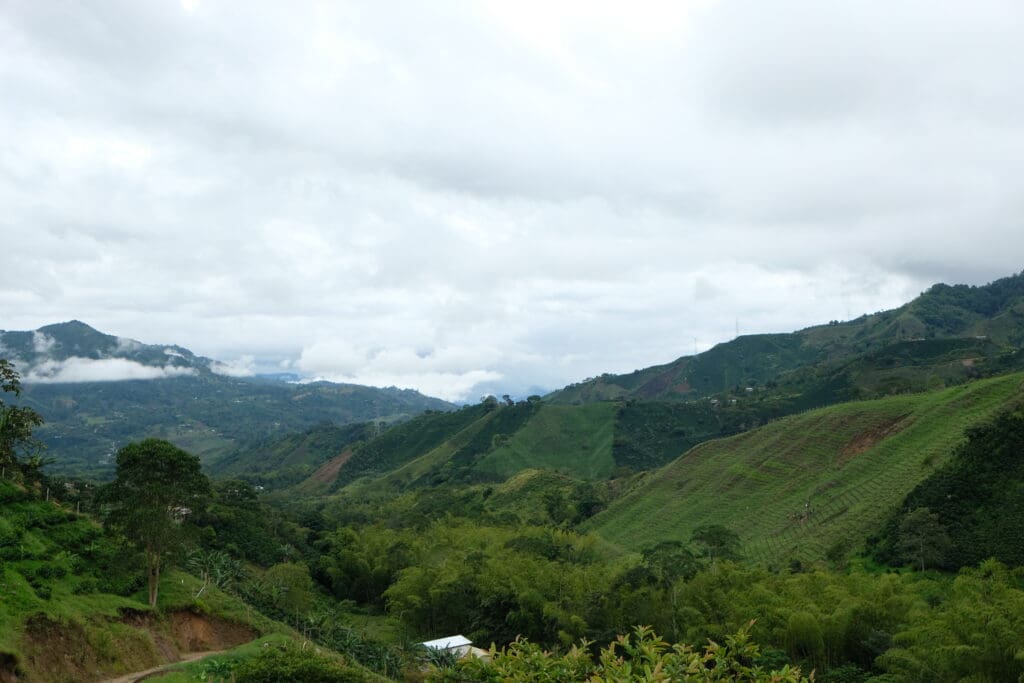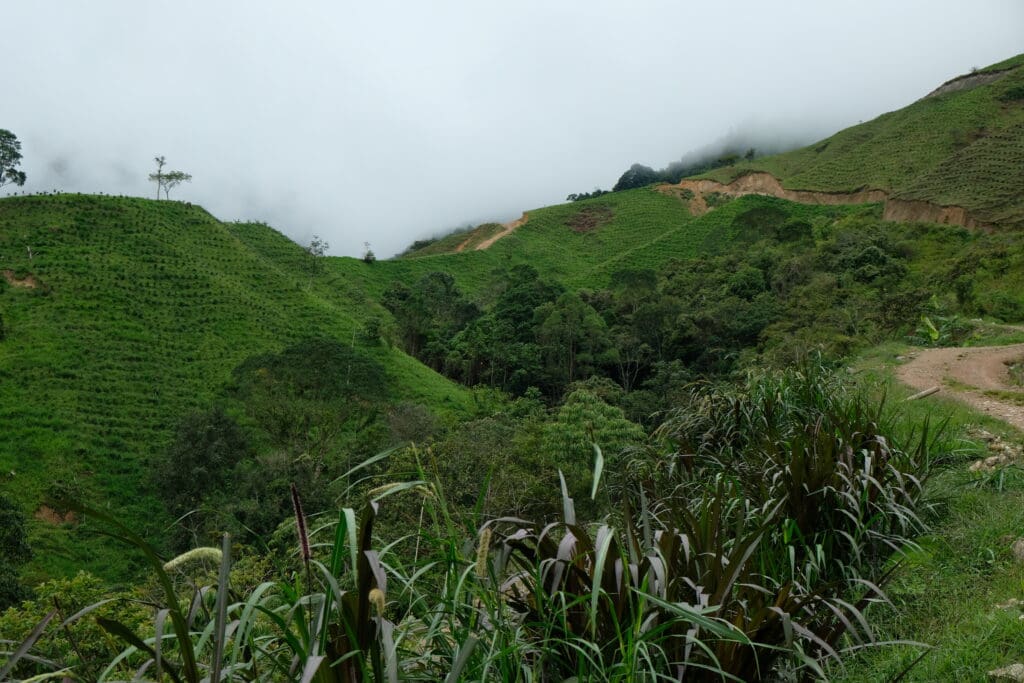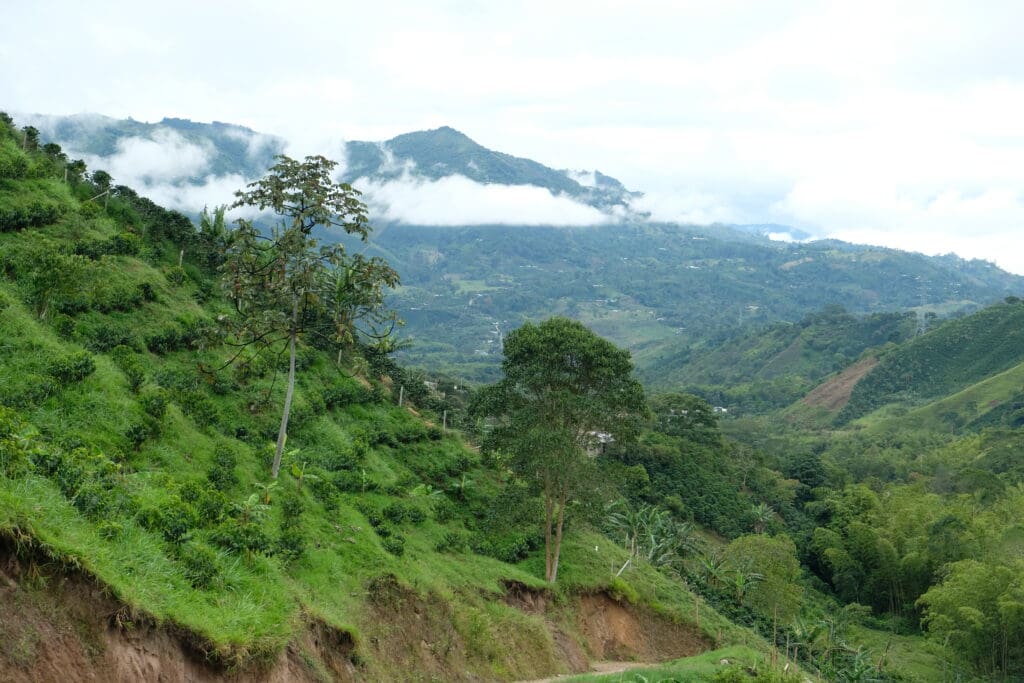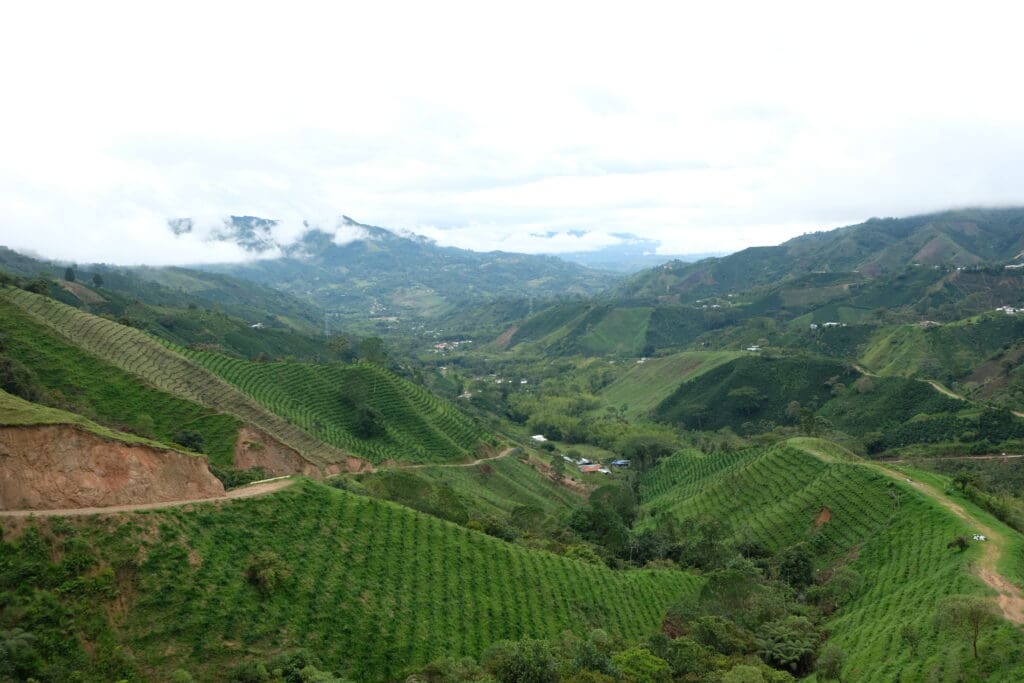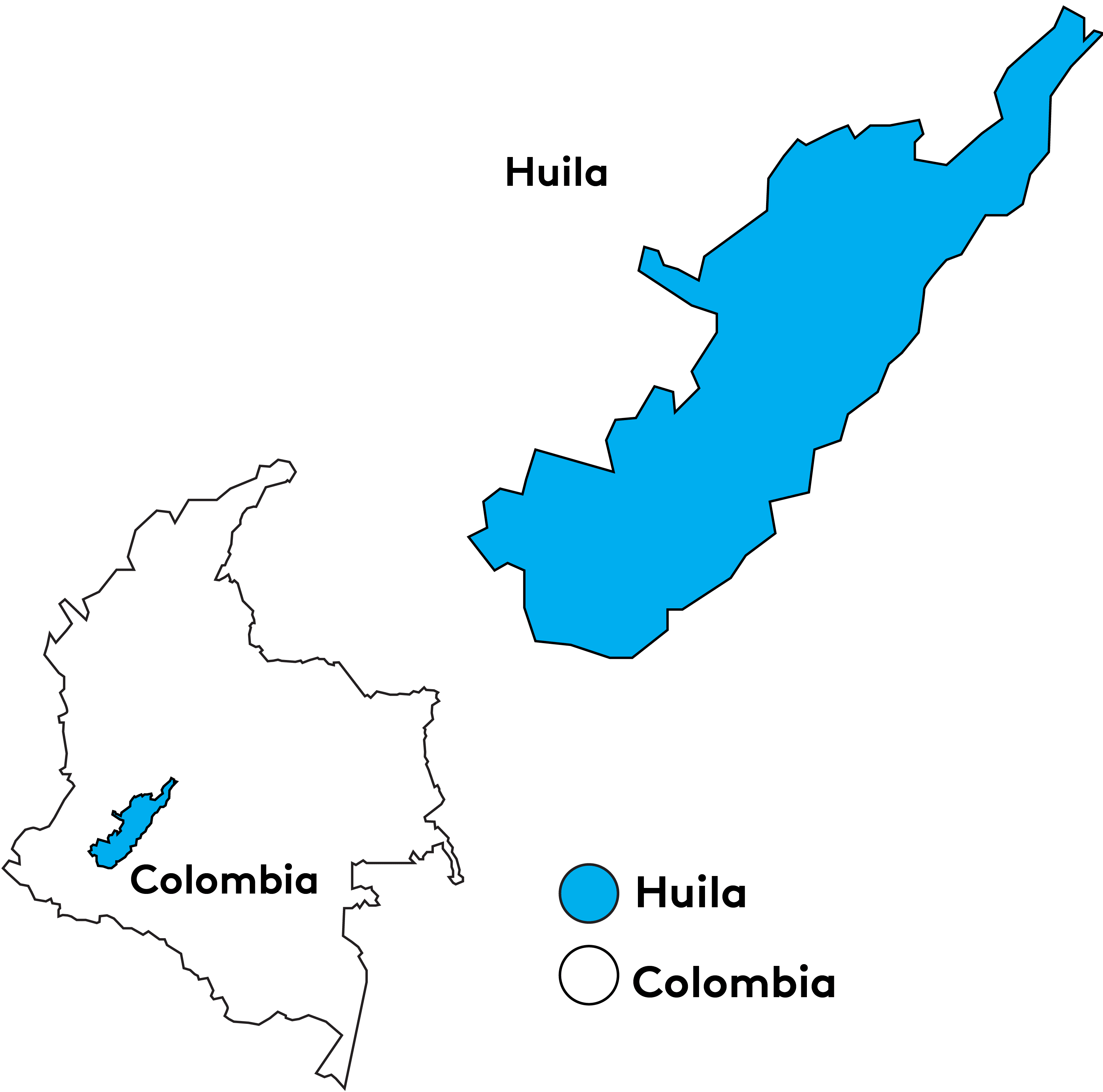Operated by Rodrigo Sanchez and Claudia Samboni since 2022, Las Veraneras is located in the Peñas Blancas mountain range bordering the municipalities of Acevedo and Pitalito in the Huila region. The property sits 1500–1750 meters above sea level, and is surrounded by more than 600 hectares of forest reserve as well as the Santa Barbara stream, which is the tributary of two rural aqueducts joining the Timana river.
Las Veraneras is planned to have more than 20 different varieties—including Sudan Rume, Mokka, Purple Caturra, Pacamara, Gesha, Bourbon and 16 others—which are processed using all of the knowledge Rodrigo and Claudia have gained after their years of experience managing farms like Monteblanco, La Loma and Las Nubes. This ambitious scale makes Las Veraneras their most expansive project yet.
Rodrigo and Claudia continue to work to improve their coffees despite already establishing themselves as skilled and innovative producers. Pink Bourbon from their farms earned first place in 2017 and second place in 2018 at the Yara Champion competition. Then, at Roasters United 2019, they won first place with their Purple Caturra Washed, followed by placing third later on. In addition to these accolades, microlots from their farms like Monteblanco, La Loma, and Las Nubes, regularly serve as competition coffees around the world, showing their care in cultivation and expert processing execution. With Las Veraneras as the latest addition to their Aromas del Sur company, Rodrigo and Claudia hope to earn many more achievements as they continue refining and innovating their processes in order to show the world the potential of their work.
This lot of Caturra underwent Natural processing. Cherries are harvested with an average sugar content of 24°–28° Brix and with a pH between 5.6 and 5.9. The cherries are then fermented in their collection bags for 36 hours prior to being floated to remove unripe fruit and other defects. The fermented cherries are dried in direct sunlight for 6 days and then dried in the shade for 24 days to reach the ideal humidity.
